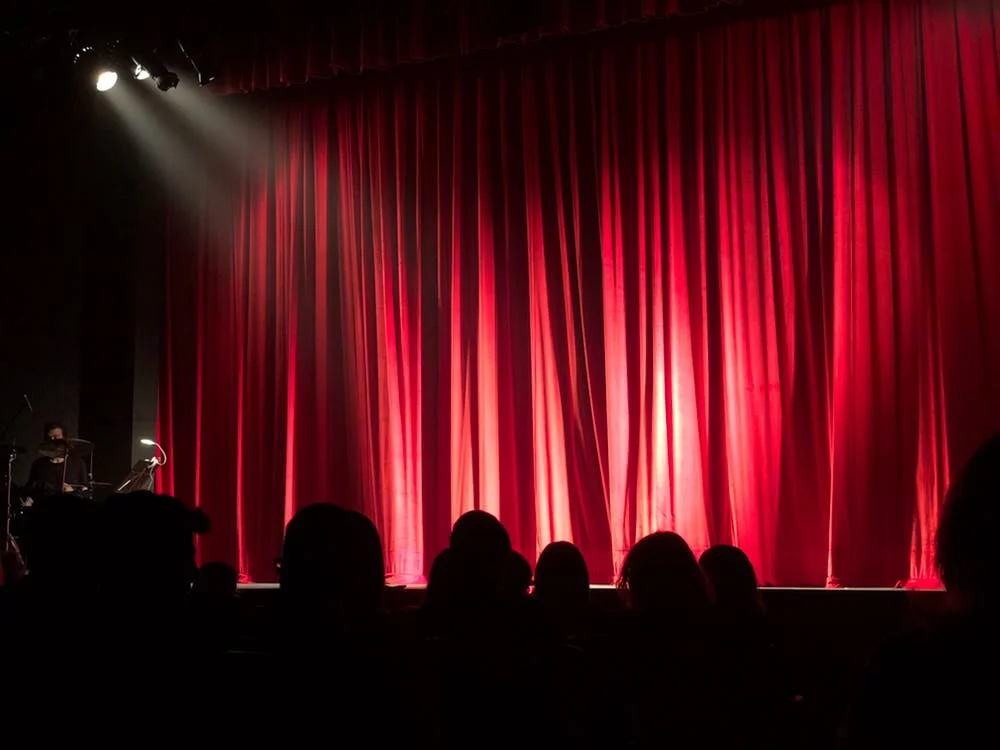A Conversation with Rohina Malik
How Stories Can Smash Stereotypes
An INTER Interview
Rohina Malik – Photo: INTER
One thing that breaks down barriers between people is sharing stories. When we hear someone’s story and hear their hopes and struggles, we can’t help but see their humanity. Marshall Ganz in The Art and Craft of Social Change says “A story communicates fear, hope, and anxiety, and because we can feel it, we get the moral not just as a concept, but as a teaching of our hearts.” Telling stories to break down barriers and teach our hearts is what playwright Rohina Malik sees as her calling.
In her play Yasmina’s Necklace, Rohina says she is trying to “not only challenge negative stereotypes, but to be the hammer to smash them.” The play is about a young Muslim artist, Yasmina, who has recently come to Chicago from Iraq. She soon meets Sam, the son of an Iraqi father and Puerto Rican mother. Together they navigate what it means to be an immigrant and refugee. As a Muslim American, this is a theme Rohina has written about before. Her one-woman show, Unveiled, portrays five Muslim women discussing the choice to cover their heads and the resulting discrimination they encounter.
Rohina discussed with INTER her newest project and what it means to be a storyteller who is trying to engage audiences outside of the Muslim community with stories about the Muslim community.
** ** **
INTER: How do your own different identities affect what you write about?
Rohina: My many identities help tell stories from a perspective that others may not have heard from. I grew up in London, England, but my home was a very Pakistani home. It gave me access to two very different cultures and worldviews.
I moved to America when I was 15. All the different parts of me, my British side, my American side, my Muslim and Pakistani sides, all help me tell stories that have multiple points of view.
INTER: Tell us a little bit about your most recent project, Yasmina’s Necklace?
Photo: Amazon
Rohina: A friend told me about a woman he saw at a grocery store. She was the cashier, and she had a necklace with a pendant cut in the shape of Iraq, and in the center it said Iraq. And this was at a time when our country was at war with Iraq, so to wear that at that time was just ... something about it really resonated and that’s how Yasmina was born.
And then, I was thinking about a friend who is a Latina Muslim. She’s from Puerto Rico, her husband is an Arab, and they are so hilarious. They don’t have children, and I was thinking, who would their child be? If they had a son, who would he be? He’d be half Puerto Rican, half Arab, born and raised in America, and that was all on my mind with the whole thing about people changing their names; and that’s how Sam was born. So then I thought, what would happen if Yasmina met Sam?
INTER: Do you see theater as a way to help people understand each other better? If so, how?
Rohina: The theater is powerful because it tells a story live. The actors and audience go through a live experience at the exact same time. There is something very powerful about that. In my play, we enter a Muslim home, and that is a new experience for many people. By entering a home, we are able to see people as people, and that is very important.
INTER: I know you’ve said, “Muslims in our media are rarely portrayed as normal people,” but rather they are too often portrayed at the extremes, either as villain or victim. What do you think are some of the main misconceptions about Muslims in the U.S.?
A scene from Yasmina’s Necklace at Goodman Theater – Photo: INTER
Rohina: Often with our television shows and our films, roles that are written about Muslims are often written by people who are not Muslim and can often really fall into stereotypes. That is problematic. I’m concerned to see Muslims so frequently represented as the villain, the terrorist, somebody who’s plotting something evil. Rarely do we see Muslims as normal human beings, and that’s so dangerous.
When I was writing Unveiled, I did a lot of research on hate crime, And what I found was that hate crime never begins with the weapon, the gun, the knife, the bat. It begins with an atmosphere of negative stereotyping and degrading language. When those two things are left unchallenged, the result can be a murder. So it doesn’t matter what community you’re talking about, whether it’s the Black community, the Muslim community, the Jewish community, if those two things — negative stereotypes and degrading language — are left unchallenged, the result can be murder. And I find it so frightening when we are bombarded by images of Muslims in stereotypical ways.
INTER: How can people — who are not playwrights and do not have such a platform — help to dispel these misconceptions?
Rohina: Find ways to get to know other people. Studies show that people who know Muslims don’t have negative stereotypes. But when people don’t know Muslims, then stereotypes are common. We have to find ways to get to know each other.
Check out Rohina’s website to learn more about her current work as an award winning playwrite and screenwriter .
This article was originally published by INTER, a publication of the Interfaith Youth Core.
Header Photo: Pexels




